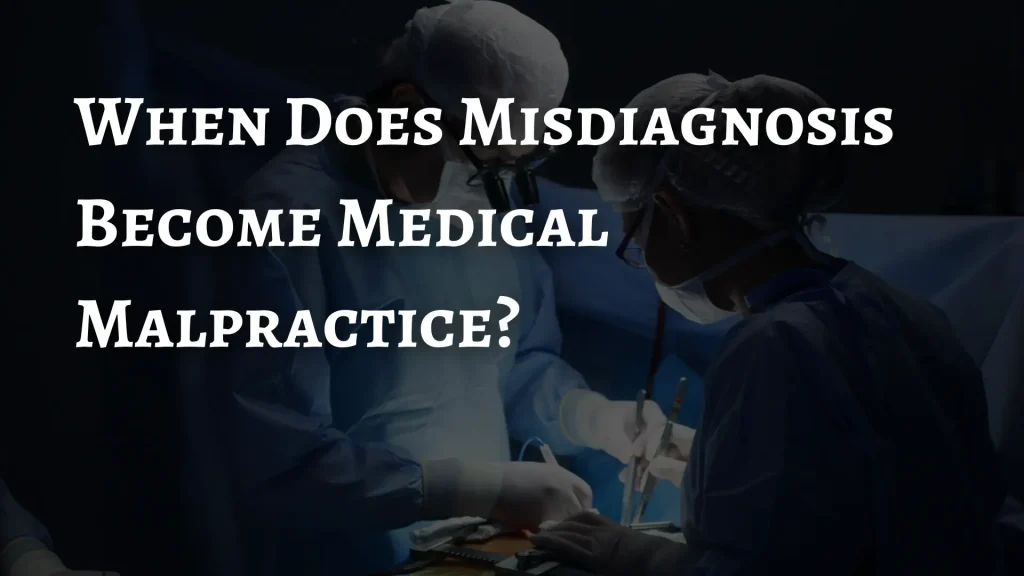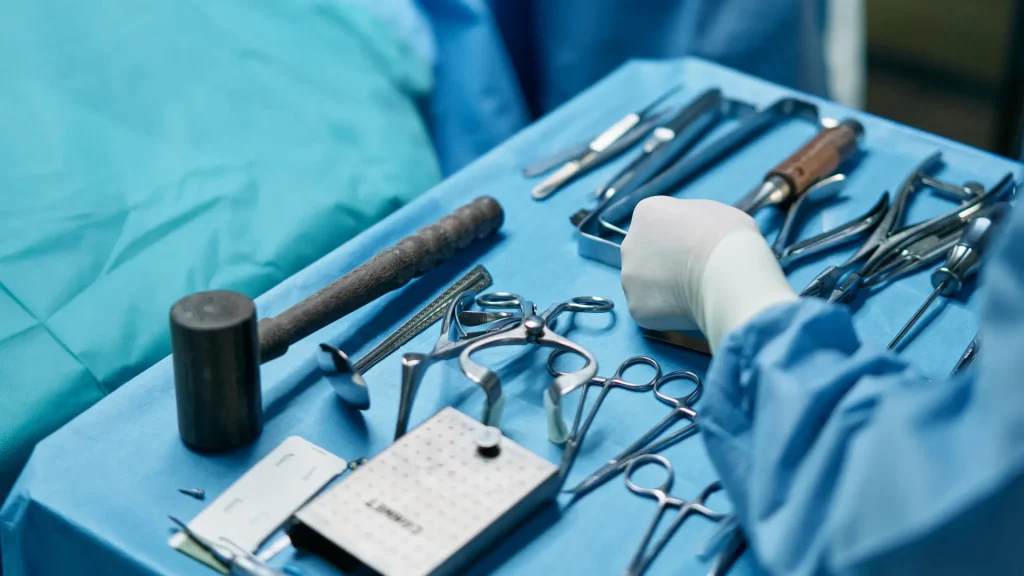
Doctors don’t have the luxury of guessing. When they get it wrong, patients pay the price. Some catch the misdiagnosis through a second opinion. Others suffer long-term damage from conditions that could have been treated earlier or avoided altogether. In many cases, misdiagnosis or medical malpractice differences are to blame. When a healthcare provider fails to identify the correct condition, the consequences can be life-altering.
Fort Walton Beach personal injury lawyers take misdiagnosis cases seriously because the consequences extend far beyond the doctor’s office. If a physician missed something they should have caught, the law may consider it more than a mistake.
When Misdiagnosis Becomes Medical Malpractice
Not every missed diagnosis qualifies as malpractice. The key issue is whether the doctor violated the accepted medical standard of care—the level of skill and attention another reasonable doctor would have used in the same situation.
To build a case, you need to show that:
- A doctor-patient relationship existed
- The doctor made an incorrect medical diagnosis, delayed the correct one, or failed to diagnose a serious condition.
- That failure caused you harm.
This claim often appears in diagnostic error lawsuits when a doctor dismisses symptoms, skips essential tests, or relies on assumptions instead of facts. Courts also review whether the condition would have received adequate treatment if caught earlier. In some cases, a misdiagnosis sets off a chain reaction of unnecessary procedures, prolonged pain, or irreversible decline. These outcomes often stem from medical misdiagnosis & failure to diagnose, where critical warning signs are overlooked, leaving patients without the timely care they urgently need.
A breach of the standard of care doesn’t always involve an obvious error. A missed lab result, a rushed appointment, or a distracted doctor can still change everything for the patient.
Common Conditions Often Misdiagnosed
Doctors misdiagnose many different conditions, but some appear more frequently than others in malpractice cases. These include:
- Cancer (breast, lung, colon, prostate)
- Heart attacks and other cardiac events, especially in women
- Strokes, often mistaken for migraines or vertigo
- Infections, including sepsis and meningitis
- Autoimmune disorders, such as lupus or multiple sclerosis
- Blood clots or deep vein thrombosis
These conditions often present with vague or overlapping symptoms, which doesn’t excuse inattention or missed red flags. In many misdiagnosed conditions and wrongful lawsuits, the provider had access to critical information but failed to connect the dots. Timely intervention could have prevented serious consequences, and ignoring that responsibility opens the door to liability.
Women, people of color, and younger patients often experience delayed diagnoses because of unconscious bias or outdated assumptions about risk.
Harm Caused by Misdiagnosis
The damage from a wrong or missed diagnosis often extends well beyond the original condition. Many victims experience:
- Worsening symptoms or irreversible damage
- Unnecessary surgeries or procedures
- Side effects from incorrect medications
- Missed opportunities for early treatment
- Emotional distress and loss of trust in medical professionals
Financial pressure builds fast when a diagnosis goes wrong. A misdiagnosis compensation claim may cover missed income, long-term care, or out-of-pocket medical costs. Many patients lose trust in doctors and develop anxiety or depression after being ignored or misled. These consequences don’t disappear after recovery—they change how people live daily.
Please read more about claiming lost wages here: How to Claim Lost Wages From a Car Accident
For children or elderly patients, misdiagnosis can trigger rapid decline. Missed developmental delays, untreated infections, or incorrect psychiatric labels all carry lasting effects that alter entire lifespans. Families often face not just medical trauma but also grief, guilt, and years of additional care.
Proving the Doctor Made a Mistake on Misdiagnosis Medical Malpractice
You must connect the misdiagnosis to real harm to win a malpractice claim based on a doctor’s mistake. That involves more than showing the doctor got it wrong—you must prove they acted unreasonably.
Evidence might include:
- Medical records and test results
- Expert opinions from other physicians
- A timeline showing when a correct diagnosis should have occurred
Some cases involve a failure to diagnose thoroughly, while others hinge on a wrong treatment injury, such as prescribing chemotherapy for a condition that wasn’t cancer. Either way, courts examine whether the doctor acted like a reasonable provider would have. Gaps in testing, incomplete intake forms, and poor communication between departments often play a role.
A patient’s diligence can also support their case. If you described all symptoms clearly, followed instructions, and requested additional evaluation but still received a wrong or late diagnosis, those efforts help prove negligence. Your voice matters.
System Failures and Shared Responsibility
Misdiagnosis often reflects more than one person’s mistake. Hospitals and clinics may carry partial responsibility if poor training, rushed appointments, or communication breakdowns contributed to the error. Electronic health record issues, unclear lab results, or administrative delays may also point to medical negligence or misdiagnosis by the institution.
A successful case may require holding multiple parties accountable:
- The individual doctor or specialist
- The facility that employed or credentialed them
- The lab or diagnostic service that processed the test results
Each party must protect patient safety. When someone drops the ball, that failure can carry legal consequences and reveal deeper problems within the system.
Some hospitals operate under pressure to minimize testing or reduce appointment times to boost efficiency. These policies sometimes push providers to rush, guess, or skip steps—creating a perfect storm for error. Uncovering that pressure can strengthen your claim.
Your Rights and Legal Options for Misdiagnosis Medical Malpractice
 Patients don’t expect perfection, but they do expect competence. When doctors miss something obvious, Florida law gives injured patients the right to seek accountability through a malpractice claim.
Patients don’t expect perfection, but they do expect competence. When doctors miss something obvious, Florida law gives injured patients the right to seek accountability through a malpractice claim.
That includes:
- Filing a delayed diagnosis legal claim or medical malpractice lawsuit
- Seeking damages for the wrong treatment injury
- Holding the hospital or clinic accountable for systemic failures
Many of these cases involve doctor liability misdiagnosis claims that reveal patterns of rushed visits, overloaded schedules, or a failure to communicate between providers. Patients suffer when a provider dismisses concerns or fails to follow up on abnormal results. Florida courts recognize the importance of timing and attention in preventing long-term harm.
You can pursue legal action for medical errors when a provider’s mistake leads to injury or death. The law offers a path forward for those affected by diagnostic failures, and the sooner you act, the more evidence remains available.
Talk to Fort Walton Beach Personal Injury Lawyers Today
At The Bruner Law Firm, we believe no patient should suffer in silence after a preventable medical error. Our team works to uncover the truth behind misdiagnosis cases and pursue full compensation for the harm caused.
Call our Fort Walton Beach personal injury lawyers to determine if your case meets the legal standard for misdiagnosis medical malpractice. We’ll review the facts, explain your rights, and fight for your desired outcome. Our team is here to help you understand your rights and take the first step toward securing the necessary benefits. Contact us online or call us today at (850) 243-2222 for your free consultation.
Related Post
Who will pay my medical bills after an automobile accident?
Defective Drugs and Pharmaceutical Lawsuits: Your Legal Rights







